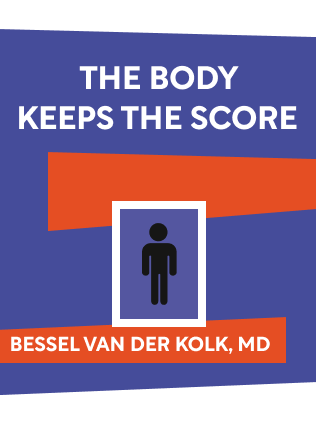

This article is an excerpt from the Shortform book guide to "The Body Keeps The Score" by Bessel van der Kolk. Shortform has the world's best summaries and analyses of books you should be reading.
Like this article? Sign up for a free trial here .
Is PTSD misdiagnosis common? How can a PTSD misdiagnosis occur and can flaws in the DSM lead to this problem?
While a PTSD misdiagnosis is less common in modern medicine, it happens. It occurs both because PTSD is a complex diagnosis, and because PTSD wasn’t always clearly defined.
Read more about how PTSD misdiagnosis can happen and why PTSD may not be an easy diagnosis.
Flaws in the DSM Can Lead to PTSD Misdiagnosis
Because psychiatry deals with the complex human mind, diagnoses and treatments can’t be as precise as other branches of medicine that deal with strictly biological and physiological systems.
DSM (which we introduced earlier) is considered the bible of psychiatric diagnoses, and is the basis for insurance claims, research funding, and academic programs. It is regularly revised and republished, but many psychiatrists and mental health organizations still oppose the diagnostic approach of the DSM, saying the diagnoses define disorders by their symptoms instead of their root causes.
To better understand how this approach is flawed, think of it in terms of medicine: Before the late 1800s, doctors diagnosed illnesses based on symptoms like fevers and pustules. But after the discovery of bacteria, the medical field shifted to target the bacteria that caused the symptoms instead. Many different ailments can produce the same symptoms — anything from dehydration to pneumonia could cause a fever — so a symptoms-oriented approach is too vague to lead you to the root issue.
It’s not just about finding the right label; the diagnosis determines the treatment (you wouldn’t treat pneumonia simply with fluids). This makes a PTSD misdiagnosis a concern.
Furthermore, looking solely at biological and genetic sources of mental disorders gives an incomplete and inaccurate view. Social relationships and environments are a critical aspect of human psychology, so the psychiatrists must take those factors into account when diagnosing and treating patients. Dysfunctional social relationships are not only the cause but also the consequence of many mental disorders.
PTSD Isn’t a One-Size-Fits-All Diagnosis
Trauma doesn’t look the same on everyone: The type of trauma and age at which you experience it both impact the effects. Psychiatrists can’t fully understand patients’ mental and emotional disorders unless they understand the trauma at the root of it. This means that psychiatrists should be careful not to apply a PTSD misdiagnosis.
Abuse impacts victims differently depending on how old they are when it happens, and what that means for their brain development at that age. Furthermore, the trauma symptoms that victims of child abuse exhibit are vastly different from those of people who experienced trauma as adults.
The child abuse survivors largely didn’t fit the DSM definition of PTSD — in part because they often didn’t remember their trauma — so one study compared the symptoms of three groups of traumatized people: People who experienced childhood physical or sexual abuse by caregivers, recent domestic violence victims, and recent natural disaster survivors. Those who were abused as children had a range of symptoms that the natural disaster survivors largely didn’t have, including trouble concentrating, self-loathing, difficulty with intimate relationships, self-destructive habits, large gaps in their memories, and an array of medical problems.
The other describes several efforts to propose additional diagnoses to the DSM that would fit for trauma victims whose experiences and symptoms don’t fit the PTSD diagnosis. However, those attempts failed, presumably leaving those patients to receive inaccurate diagnoses and inadequate treatments, like a PTSD misdiagnosis.

———End of Preview———
Like what you just read? Read the rest of the world's best book summary and analysis of Bessel van der Kolk's "The Body Keeps The Score" at Shortform .
Here's what you'll find in our full The Body Keeps The Score summary :
- How your past trauma might change your brain and body
- What you can do to help your brain and body heal
- Why some trauma survivors can't recognize themselves in the mirror






